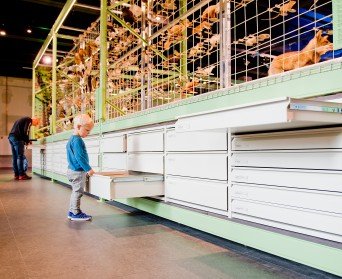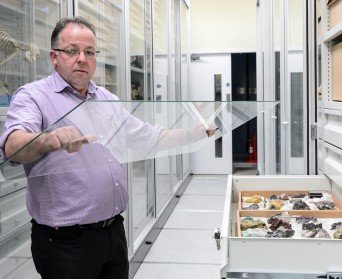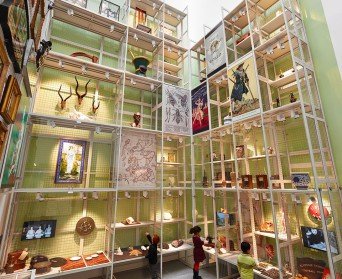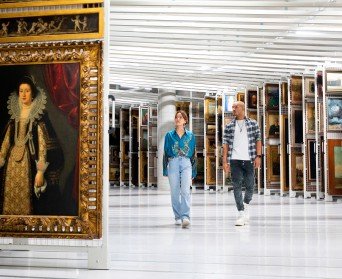-
Applications
-
Product families
-
About Bruynzeel
-
Highlights
Perhaps the main global challenge today is how to keep the planet `in shape` for future generations. In a world in which natural resources and space are becoming ever more scarce assets we need natural history to help towards a better future. One of the elements is to think about efficient use of every single m2 available. Did you know that you could reduce your storage space by up to 75%? Less space used for storage means more room for your collection, a decrease in costs per m2 and a substantial positive impact on your footprint.
Who are we? We are:
- Your guiding hand during the design phase of your storage facility
- Helping our customers to audit their collections and organise their space and collection in the most optimised and sustainable way
- A collaborative partner during the whole process, from planning to design to installation and service
- The missing link between your concerns and safe storage of knowledge and objects
- Your source of inspiration with 100’s of projects installed globally
- The world’s most environmentally friendly provider of space creating solutions
- That one resource in your project team you can always call

Naturalis Biodiversity Center, The Netherlands
Biodiversity shown in 256 tailor-made glass covered drawers
"We need absolute top quality. Then you automatically end up with Bruynzeel." Naturalis chose drawers from Bruynzeel to show a large part of the collection to the public that is normally stored in a depot that is not publicly accessible.

Lapworth Museum of Geology, United Kingdom
Open repositories accessible by the public
The museum houses over 250,000 specimens as well as geological maps, equipment, models, photographs, zoological specimens and stone axes. It required a storage company with experience of creating open repositories accessible by the public.
Related products
Contact
Talk to an expert
Let us know your challenge or question and we'll be in touch shortly.
-default.jpg)
-default.jpg)
-default.jpg)
-grid-item-default.jpg)

-grid-item-default.jpg)
